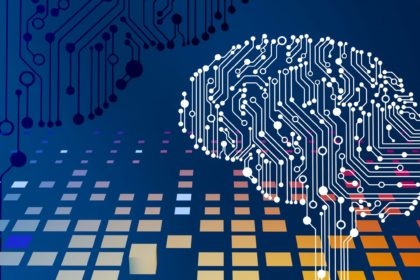
Cybersecurity has become a critical concern for organizations across all industries. As cyber threats continue to evolve and grow in complexity, businesses are increasingly turning to advanced technologies to bolster their defenses. One such technology that has garnered significant attention is Artificial Intelligence (AI). By integrating AI into IT security teams, organizations can harness the power of machine learning algorithms and predictive analytics to enhance their cybersecurity posture.
Understanding the Role of AI in Cybersecurity:
Artificial Intelligence, or AI, refers to the simulation of human intelligence in machines that are programmed to think and learn like humans. In cybersecurity, AI technologies can analyze vast amounts of data, identify patterns, and detect anomalies that may indicate potential security threats. AI-powered systems can continuously monitor network traffic, endpoint devices, and user behavior to identify suspicious activity in real-time. Additionally, AI can automate routine tasks such as security incident response and threat mitigation, allowing IT security teams to focus their efforts on more strategic initiatives.
The Benefits of AI Integration with IT Security Teams:
Integrating AI into IT security teams offers a myriad of benefits for organizations looking to enhance their cybersecurity defenses. One key advantage is the ability to improve threat detection and response capabilities. AI algorithms can analyze large datasets to identify potential security threats, including malware infections, phishing attacks, and insider threats, with greater accuracy and efficiency than traditional methods. By leveraging AI-powered tools, organizations can detect and respond to security incidents in real-time, minimizing the impact of cyberattacks and reducing the risk of data breaches.
Furthermore, AI can help organizations stay ahead of emerging threats by providing proactive threat intelligence and predictive analytics. By analyzing historical data and identifying patterns indicative of potential security risks, AI systems can help IT security teams anticipate and mitigate threats before they escalate into full-blown attacks. This proactive approach to cybersecurity can significantly enhance an organization’s ability to protect sensitive data and critical assets from cyber threats.
Challenges and Considerations:
While the benefits of AI integration in cybersecurity are undeniable, organizations must also be mindful of potential challenges and considerations associated with adopting AI-powered solutions. One such challenge is the issue of data privacy and security. AI systems rely on vast amounts of data to train their machine learning models, including sensitive information such as user credentials and personal identifiable information (PII). Organizations must ensure that proper safeguards are in place to protect this data from unauthorized access or misuse.
Additionally, organizations must address concerns related to algorithm bias and fairness. AI algorithms are trained on historical data, which may contain inherent biases that can lead to discriminatory outcomes. To mitigate this risk, organizations must implement measures to identify and address bias in AI algorithms, such as conducting regular audits and employing techniques to promote fairness and transparency in AI decision-making processes.
Real-World Examples:
Numerous organizations across various industries have successfully implemented AI-powered cybersecurity solutions to enhance their defenses against cyber threats. For example, financial institutions use AI-powered fraud detection systems to identify and prevent fraudulent transactions in real-time. Similarly, healthcare organizations leverage AI algorithms to analyze medical data and detect anomalies that may indicate potential security breaches or patient privacy violations. By harnessing the power of AI, these organizations can strengthen their cybersecurity posture and better protect sensitive data and critical assets from cyber threats.
Future Implications and Trends:
Looking ahead, the integration of AI into IT security teams is poised to play a significant role in shaping the future of cybersecurity. As AI technologies continue to advance, we can expect to see continued innovation in areas such as threat detection, incident response, and predictive analytics. Additionally, the proliferation of AI-powered cybersecurity solutions is likely to drive greater collaboration and partnership between AI developers and IT security professionals, leading to more robust and effective cybersecurity strategies.
In conclusion, the convergence of AI and IT security teams represents a significant opportunity for organizations to bolster their cybersecurity defenses in an increasingly digital world. By harnessing the power of AI, organizations can improve threat detection and response capabilities, proactively mitigate emerging threats, and stay ahead of cyber adversaries. As the cybersecurity landscape continues to evolve, organizations must embrace AI integration as a fundamental component of their digital defense strategy to protect sensitive data and critical assets from cyber threats.
If you’re looking to enhance your organization’s cybersecurity defenses with AI-powered solutions, contact Partnered Solutions IT today. Our team of experts specializes in AI integration, cybersecurity strategy, and digital defense solutions tailored to meet the unique needs of your organization. Don’t wait until it’s too late—partner with us to unlock the full potential of AI in safeguarding your digital assets and protecting your business from cyber threats.







